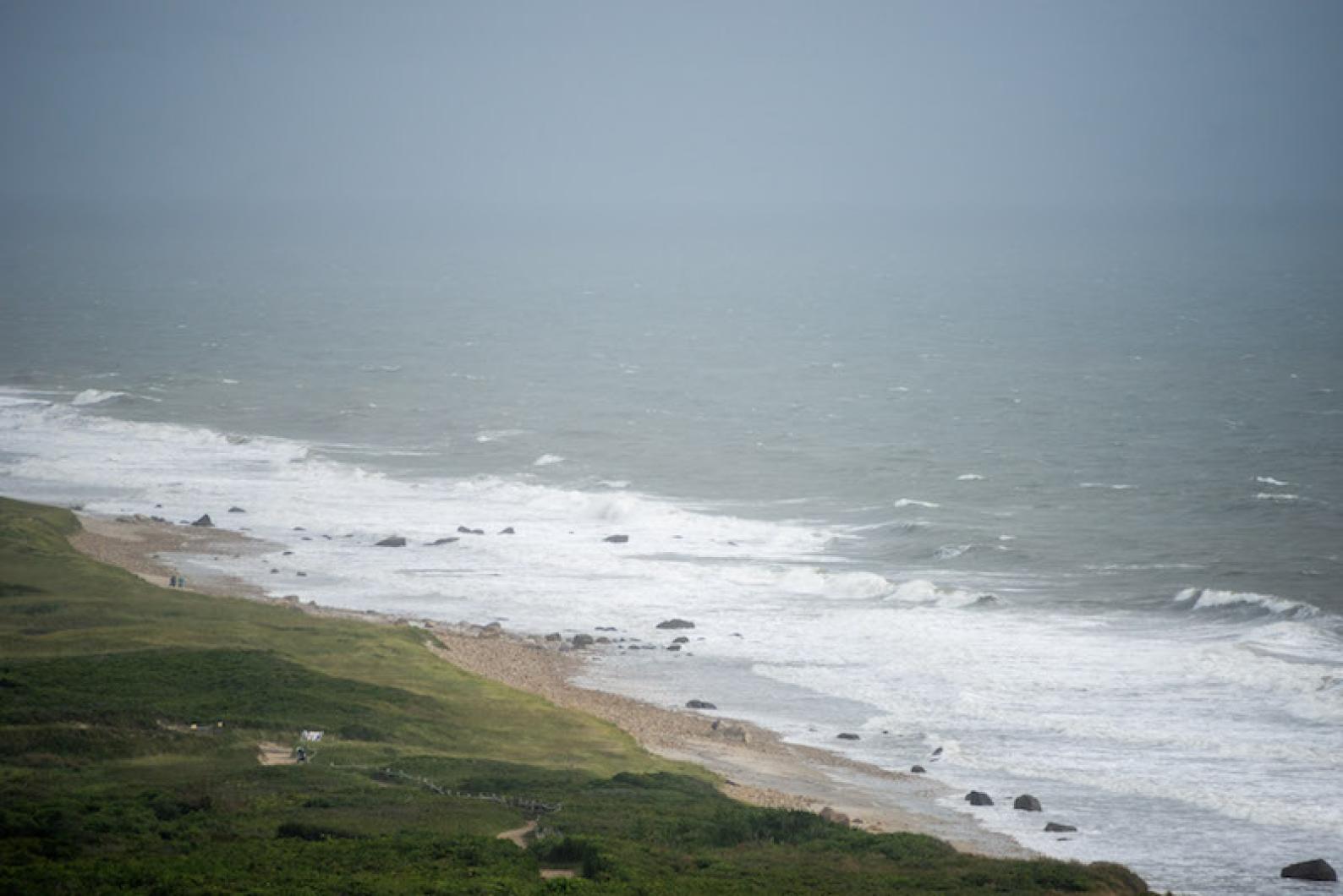A group of Nantucket residents filed a lawsuit Wednesday against the U.S. Bureau of Ocean Management and others, claiming federal officials did not adequately consider the adverse effects on the North Atlantic Right whale and other marine life when they approved the Vineyard Wind project.
In a 36-page complaint filed in U.S. District Court in Boston, a group calling itself ACK RATS (Nantucket Residents Against Turbines) and co-founder Vallorie Oliver asks the court to compel the BOEM, the National Oceanic and Atmospheric Administration and the National Marine Fisheries service to redo their environmental analyses of the project.
After extensive review, BOEM issued a Record of Decision for Vineyard Wind 1 in May, clearing the way for construction to begin on the nation’s first industrial-scale offshore wind farm. The initial project calls for the installation of 62 turbines about 15 miles south of Martha’s Vineyard and Nantucket, but additional wind farms are already being planned.
In announcing the decision, federal officials hailed the project as a victory for both clean energy and economic development. Vineyard Wind 1 is expected to generated 800 megawatts of electricity annually, providing power to more than 400,000 homes.
“We can fight the climate crisis, while creating high-paying jobs and strengthening our competitiveness at home and abroad,” said Commerce Secretary Gina Raimondo at the time.
But the project has come also under criticism from fishermen, environmentalists and others, concerned about its potential effects on navigation, birds and marine life.
The lawsuit from the Nantucket group focuses chiefly on the risks to the North Atlantic Right whale, already on the brink of extinction. Scientists estimate fewer than 400 of the whales survive, and a recent study found that many of these pass regularly through the general area where the turbines will be built.
“The North Atlantic Right Whale and the other listed species affected by the Vineyard Wind project are irreplaceable parts of the fragile ecosystem that exists of the coast of Massachusetts,” the complaint says in part.
The complaint claims that federal agencies, who issued a supplemental environmental review after its initial environmental impact statement, failed to comply with the National Environmental Policy Act and the Endangered Species Act when evaluating the effects of the project and offering ways to mitigate them.
Among other things, it alleges, a biological opinion “grossly underreported the likelihood of vessel strikes against listed whale species, relied extensively on unproved and unrealistic mitigation measures to reduce such vessel strikes, and failed even to assess the negative impacts of the project on echolocation, which is the primary means by which whales communicate and navigate.”
In addition to BOEM, NOAA and the National Marine Fisheries Service, the lawsuit names Ms. Raimondo and Secretary of the Interior Deb Haaland.







Comments (23)
Comments
Comment policy »